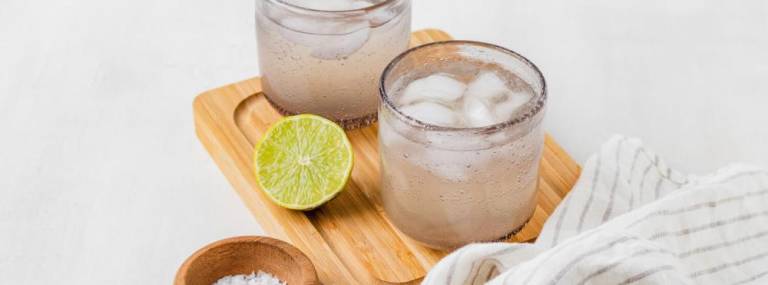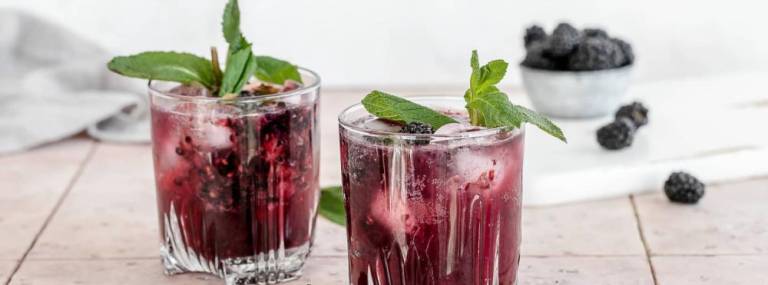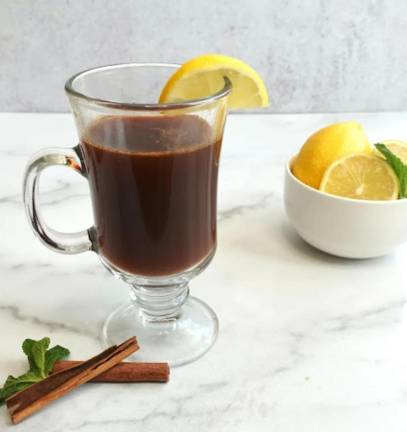Trends with benefits: Locals embrace Dry January
HEALTH. Some want to lose a few pounds or sleep better. Others want to reevaluate their relationship with alcohol. They’re all doing Dry January hoping to achieve their goals.



When we spoke to retired school counselor Kerri Yezuit two years ago, she was tackling her second Dry January. She first took on the trendy New Year’s resolution to cut alcohol for the month after hearing it on the news. Like others, she felt her drinking had increased during the pandemic; she saw the challenge as an opportunity.
“For me, I’m just doing an evaluation of what my relationship is with alcohol,” she said back in 2022. “Is it a bad habit? Is it something I use to reward myself? Is it something I use to suppress uncomfortable feelings?”
Fast forward to 2024, and Yezuit is back at it again. “And you know, I am drinking less than that initial experiment – or experience – with Dry January,” said Yezuit.
She now regularly adds “Dry July’’ and “Sober October” into her rotation as well.
She said that improved sleep is always one of the biggest and most immediate benefits she feels during the month.
Colleen Kelly, too, has noticed improved sleep. She and her husband started doing Dry January long before it went mainstream; more than ten years ago, they inadvertently cut booze for a month as part of an elimination diet they were doing together. The Warwick, N.Y., couple found that eliminating alcohol was the toughest – so they continued to take on Dry January ever since.
“You have more energy, you sleep better,” said Kelly. “And in general, it’s just to kind of reset.”
Sandyston, N.J., resident Stacy Dale, meanwhile, is tackling the challenge for the first time this year with hopes that it will lead to weight loss and an overall healthier lifestyle.
But is cutting a month of booze enough to actually enhance your mental or physical health?
Better sleep, better diet
“When it comes to Dry January, absolutely it has benefits,” said Erin Palinski-Wade, registered dietitian and founder of Vernon Center for Nutrition and Wellness in Franklin, N.J. “All of us can benefit from less alcohol because alcohol doesn’t have a large amount of health benefits.”
Palinski-Wade confirmed that Dry January participants will find improved sleep – and that it has a snowball effect. With less sleep comes less energy and higher stress levels, she said. That, in turn, leads to “changes in our appetite and satiety hormones, so we actually feel hungrier and we crave more fat and simple sugars,” explained Palinski-Wade. “So when we cut out the alcohol and abstain from it in the evening, you’ve seen improvement the next day – not just in your energy from better sleep, but you handle stress better, usually you’re not quite as hungry, you’re more likely to be physically active.”
Better sleep, a healthier diet and more energy because of it “leads to things like weight loss and improvements in blood sugar and blood pressure,” she said.
Studies show there are more benefits beyond diet and sleep. According to a 2019 study by the University of Sussex, Dry January participants were still drinking less six months later, and:
● 87% had a sense of achievement
● 80% felt more in control of their drinking
● 84% saved money
● 72% slept better
Mocktails and hobbies
For those in the throes of Dry January this year, or who may be considering taking an extended break from alcohol in the future, health professionals recommend looking at how and why you drink, and finding something else to fill that space.
“Don’t drink – then what?” posed Bob DeYoung, a licensed behavioral health counselor based out of Milford, Pa. “All right, let’s exercise. Or, let me replace this with fill-in-the-blank, whatever it is; I’m going to learn a new language, I’m going to eat better.”
He said by the time January’s up, participants find themselves saying: “Wow, it’s been a whole month now, I haven’t drank alcohol, I’m starting to hablo español! Or I started working out, and I like this – this feels better.”
This year, Yezuit made a list of healthy habits to fill her days. “I need to tap into my creativity and have fun,” she said.
Exercise, taking walks in the woods, listening to music, dancing, journaling, sewing, cooking, meditation and even filling the pages of her coloring book are on her list of things-to-do.
If you generally unwind in the evening with a nightcap, Palenski-Wade, the dietitian, recommends finding a relaxing activity in the evening, such as yoga or reading a book. Some of her clients like to replace the habit with mocktails, mixing tart cherry juice and seltzer in a wine glass; it looks like red wine, and it’s a little tart like red wine. Plus, tart cherry juice contains both melatonin and tryptophan, which makes the mocktail a sleep aid instead of a deterrent.
Non-drinking buddies
Local professionals also say there is strength in numbers when it comes to Dry January. “One thing that helps people is if they partner up with a friend...or even a whole group,” said Michelle Wolf, executive director of the Center for Prevention and Counseling in Newton, N.J. “Even with adults, there’s peer pressure.”
Yezuit has been known to order a non-alcoholic beer on the sly during Dry January.
Up until this year, the Kellys avoided social January outings to avoid alcohol. Normally they hunker down, cut the booze and spend the month cooking healthy meals together at home.
This time around, “we do have some gatherings that we’re attending and it’ll be really interesting to go and not drink,” said Colleen Kelly. “I really want to start to incorporate a social life and not have the need to have alcohol with the social aspect of it.”